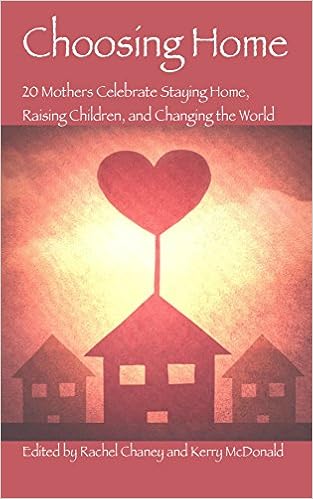I remember the book I read that would set me on my life’s initial
career path. I was 14 and it was lying in a book bin in the small den on the
first floor of my childhood home. For 8th grade English class we had
a brief and unusual hiatus from whatever curriculum directives dominated the
syllabus and we were allowed to read whatever book we wanted. It was called “free
choice.”
The pages of Dale Carnegie’s classic bestseller, How to Win Friends and Influence People,
captivated me. A blend of historical anecdotes and real-life applications for
understanding human relations, Carnegie’s book triggered a fledgling personal interest
in both business and self-improvement. Years later, as I founded my own
corporate training company and taught hundreds of professionals across the
country in business workshops ranging from public speaking to client service to
leadership skills, the key idea of individual self-mastery first planted by
Carnegie’s book remained with me and was echoed throughout the classes I taught.
I don’t remember much else about 8th grade
English. The lessons that stayed with me, and that would ultimately define my
early professional life, had nothing to do with what I learned in school.
Perhaps that is why I am such a vocal advocate for freedom and choice in
learning: the seminal lesson from my time in school was the brief moment I was given “free choice” to do something completely outside the ordained curriculum, following my own interests.
This is one reason why I don’t tell my children what books
to read. They are free to choose whatever books interest them, whatever styles
and genres and subjects fascinate them at any given time. My job is to connect
them to available resources, to make frequent visits with them to the local
library, to fill our home with a variety and abundance of books and other
reading material, to read to them often and to model my own love of reading for
them. But all of their books are “free choice.”
At seven, my daughter Abby is our family’s newest reader.
She told me the other day: “Mama, I only read books that I like.” It
was such a simple, yet culturally radical, statement—for a child anyway. I
replied that I, too, only read books that I like. Most of us adults
are, I hope, free to choose what books we read and don’t read. Yet, for
children we often assume that there are certain things they must read. Not only
that, we often force them to learn to read in a long, arduous, mundane process,
completely disconnected from their interests and on an arbitrary timeline that
increasingly pushes young children to read before they are developmentally
ready. As
assistant professor of education, Daphna Bassok, and her colleagues at the
University of Virginia discovered: In 1998, 31% of
teachers believed that children should learn to read while in kindergarten. In
2010, that number was 80%.
If we were to design a system of reading instruction certain
to fuel a general dislike of reading, and by extension learning, then we would
create a system that forces children to read things they don’t like and that
have no meaning for them, at ever earlier ages, with rampant labeling,
tracking, testing, and interventions to ensure that they meet an artificial
curriculum standard. Are we surprised that one-quarter of American adults haven’t
read a book, in whole or in part, in the last year?
“But there are certain topics children should know about,”
one might say. “American history, for example.” I agree that it is desirable for
educated citizens living in a free and democratic society to have a certain
collective knowledge about important topics. But I disagree that the best way
to impart this knowledge in a free and democratic society is through force. This
may also explain why, according to a 2017 University of Pennsylvania poll, 37
percent of Americans could not identify one right protected by the First
Amendment of the U.S. Constitution! Curriculum by force, and knowledge imparted
through compulsory schooling, may not be working so well.
“But surely you have read things in your life that you didn’t
like but that you had to read,” a critic may add. Yes, I am sure that I was not
thrilled to read certain journal articles or essays in college or graduate
school, for instance, but I chose to go
to college and I chose to take that
course in pursuit of an individual goal. The choice, and attendant responsibility, were on me. I could also have
chosen not to go to college and not to take that course or pursue that goal. Most children are not
granted that same free choice in their learning.
As author Ray Bradbury famously said: “You don’t have to burn books
to destroy a culture. Just get people to stop reading them.” If we want an
educated and engaged citizenry, with a passion for reading and knowledge and ongoing
self-improvement, then perhaps “free choice” should be the norm rather than the
exception.
---
























I’m new to this blog/website and am intrigued by some of the ideas expressed. However, I disagree with this post. If a person’s literary “diet” could be compared to his nutritional diet, I think most would agree that parents have the important role and responsibility to encourage and require (not necessarily force) their children to eat healthful foods. If parents let children eat only what they like, it wouldn’t be hard to guess what that diet would look like and what kind of a toll that would take on the child’s health. A parent ought to guide a child away from junk-food literature and steer them towards vitamin-rich, character-building classics and higher-quality literature and, yes, even sometimes require (not force!) a child to read certain books for their own health and character development. There is a lot of garbage out there in the world of literature, and just like I won’t permit my children to eat certain foods, I also won’t permit them to read certain books. There are also foods (and books) that aren’t appropriate for children’s consumption. Children are born with parents for a reason. If God intended them to have 100% freedom and agency, why would He have created the family unit and put them under the care and supervision of adults for the first 18 or so years of their lives? Just some food for thought. Lol.
ReplyDelete